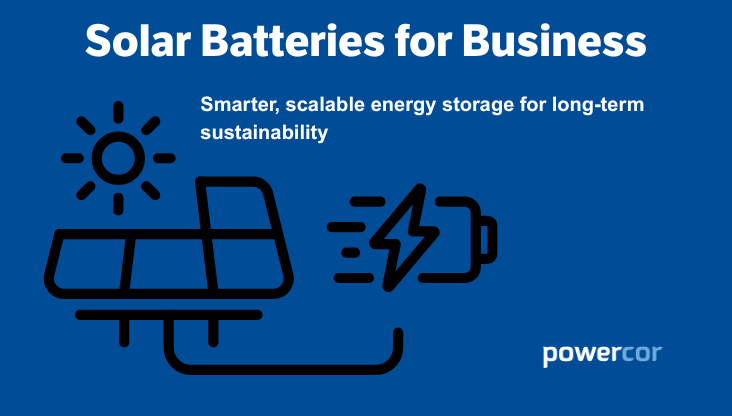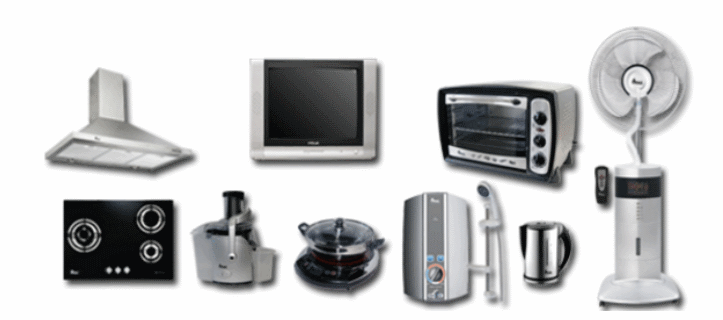As UK companies face increasing energy costs and rising sustainability pressures, solar batteries for businesses are becoming a critical solution. When paired with solar panels, battery storage provides commercial energy independence, resilience against grid outages, and significant cost savings. But what exactly should your business consider before investing?
Integrating solar batteries with your business infrastructure
One of the strongest advantages of solar batteries for businesses is their scalability. Whether you operate a small office, a mid-size warehouse, or a large sports stadium, systems can be tailored to your specific energy profile. Battery capacities typically range from 10 kWh for small commercial setups to well over 1 MWh for large-scale facilities. Modular battery systems allow businesses to expand storage as their needs grow or as electric vehicle (EV) infrastructure is added.
Integration is generally straightforward when paired with existing or planned photovoltaic (PV) installations. Inverters and energy management systems (EMS) enable seamless coordination between solar panels, battery storage, and the grid. Businesses considering EV charging stations benefit greatly from this synergy, as stored solar power can reduce peak demand costs while supporting a green transport strategy.
Inside or outside – battery positioning considerations
Battery units can be installed either indoors or outdoors, depending on space, security, and temperature control needs. Outdoor installations require robust weatherproof enclosures and may involve planning permissions, while indoor installations need adequate ventilation and fire suppression systems. In both cases, accessibility for maintenance and future upgrades should be a key factor.
How much solar battery storage does your business need?
Battery storage can be designed to meet specific goals, whether that’s powering operations for a few hours during peak tariffs or maintaining critical systems through an overnight outage. A typical system might store enough electricity to power a medium-sized office for 4–8 hours, while larger setups could sustain warehouse operations for a full day. Advanced EMS can forecast energy demand and optimise charging during off-peak hours, reducing reliance on high-cost grid power and enabling businesses to capitalise on time-of-use tariffs.
How solar batteries future-proof your business
In the face of grid instability or extreme weather events, solar batteries provide critical backup power. Businesses involved in data processing, refrigeration, or 24/7 operations especially benefit from this added layer of resilience. Coupled with demand forecasting and smart grid technology, batteries can become part of a proactive energy strategy rather than a reactive one.
Managing business energy efficiency with solar batteries
Beyond storage, the real value lies in data. Modern power measurement systems offer real-time monitoring, predictive analytics, and automated load shifting. These features can significantly improve energy efficiency by identifying usage patterns, preventing waste, and fine-tuning operational performance.
ROI, Grants & Incentives
Initial costs for commercial solar battery systems vary widely. A basic small business system might start at £15,000–£25,000, whereas large installations with advanced controls can exceed £200,000. However, the return on investment (ROI) often falls between 5 to 10 years, depending on energy savings, grid tariffs, and available incentives.
Government support schemes, such as the Smart Export Guarantee (SEG) and enhanced capital allowances, can further shorten payback periods. With energy prices expected to remain volatile, investing during periods of stability—such as in spring or autumn—can avoid rushed decisions during winter price spikes.
Are solar batteries for businesses safe? Risks & insurance explained
While solar batteries are generally safe, there are risks, particularly fire hazards related to lithium-ion chemistry. It’s essential to ensure systems are installed by certified professionals and meet all regulatory standards (such as BS 7671 and IET Code of Practice). Fire suppression systems and thermal management are key design considerations.
Insurance premiums may rise slightly depending on system size and location, but insurers are increasingly familiar with these technologies. Early engagement with insurers can help mitigate concerns and ensure adequate cover.
Who benefits most from solar battery storage for businesses?
Businesses with high daytime energy usage—such as manufacturing plants, logistics hubs, and retail centres—stand to gain the most from solar battery systems. Locations in areas prone to grid instability or with high demand charges should also consider the investment. Additionally, companies aiming to meet ESG targets or demonstrate carbon neutrality can use battery storage as a flagship technology in sustainability strategies.
Solar batteries represent a forward-looking energy storage strategy and renewable energy solution for UK businesses. Offering flexibility, resilience, and efficiency, they are particularly attractive in an era of climate uncertainty and evolving energy markets. With careful planning, the right installation can deliver both environmental and financial returns—making it a smart move for businesses serious about long-term sustainability.
FAQs







